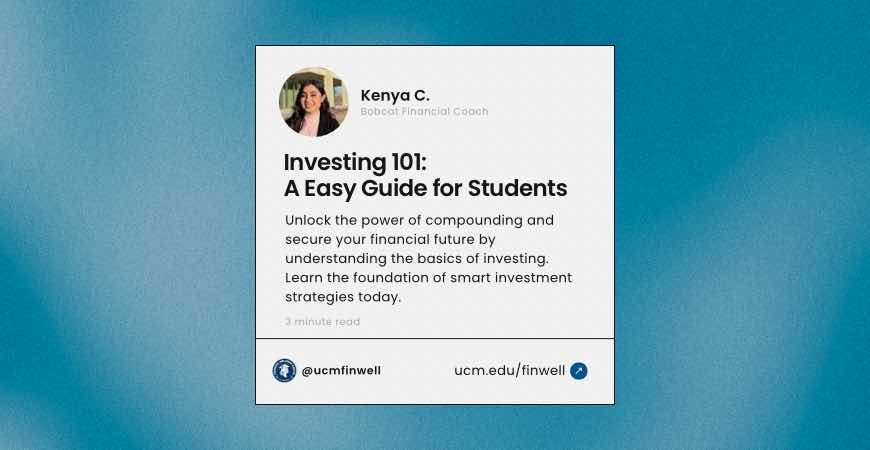
Thinking about future finances may be intimidating for most people, but there is a reason why experts recommend starting at a young age. Finances may include many parts such as budgeting, credit, taking out loans, and the most popular, investing.
What is Investing?
Investing is the process of distributing your money (capital) to work with the expectation of generating a profit. The advantages of investing include to build wealth, create a passive income, and to beat inflation.
Let’s go over on the 5 Common Ways To Start Investing:
Savings Account
Having a savings account is an investment option since it is a safe place to store cash. It involves minimal risk and is insured by the Federal Deposit Insurance Corporation (FDIC) for up to $250,000 per depositor. Savings accounts provide a small return on investment. Level of risk: low.
Bonds
A bond is a loan made by an investor to the borrower, like an IOU. The borrower promises to pay back the investment plus interest over a specified period of time. Level of risk: low to moderate.
Mutual Funds
A mutual fund is a type of investment that works by collecting money from multiple investors and then investing it amongst different securities. The advantage of mutual funds is the diversification in your portfolio which allows exposure to different companies. Level of risk: moderate.
Stocks
A stock is a share that represents a percentage of ownership of a company. Stocks are bought and sold on stock exchanges. There are many online brokers for stocks and you can work with a professional to manage your portfolio. It is important to research the companies you want to invest in by keeping up with the news and the stock market. A good way to start researching is by searching companies that you have experience with as a consumer. Stocks involve a moderate to high risk level since the value of a stock can fluctuate. Level of risk: moderate to high risk.
Real Estate
Real estate investing involves purchasing property to appreciate its value or have rental income. Since the real estate market fluctuates and comes with unexpected expenses and maintenance, it can be a moderate to high-risk investment. Level of risk: moderate to high risk.
What is Risk?
When it comes to investing, it is important to understand that investments come with a level of risk. It is important to keep in mind that higher-risk investments will have the possibility of a high return, but it also comes with the possibility of losing more money. Only you can make the decision on how much you are willing to take the risk for higher returns.
Tips Before Getting Started
Before investing in any of the five ways, it is important to create a budget and have an emergency fund. Having a budget sets the foundation for taking care of your financial responsibilities. An emergency fund is recommended in order to have at least three to six months’ worth of rent saved up. You should also save on unexpected expenses. Have money aside that you can easily access if needed for daily purchases.
About the Author:

Kenya Castillo
Bobcat Financial Coach
Kenya is currently a fourth-year majoring in Management and Business Economics at the University of California, Merced. Read more about her here!








